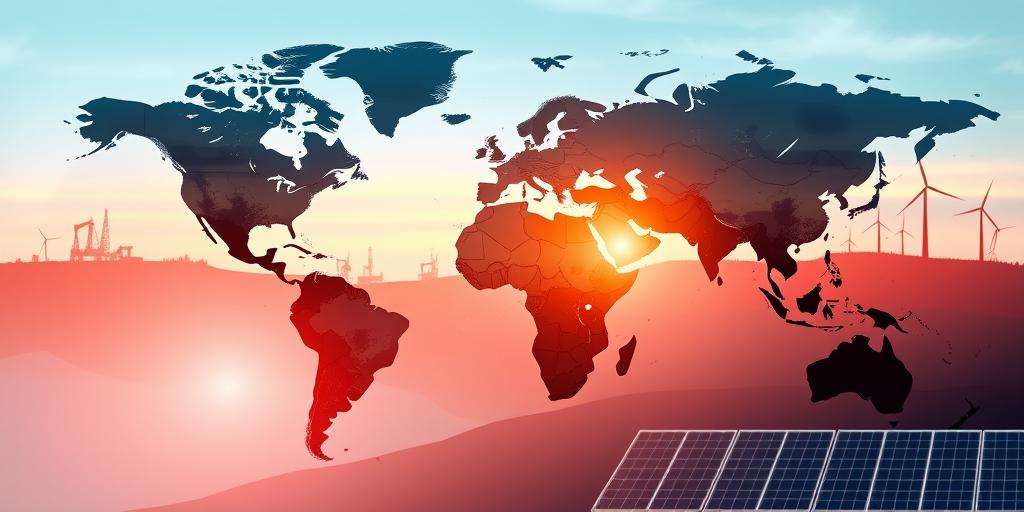The Geopolitics of Energy Resources
Energy resources are fundamental to modern society, powering industries, transportation, and homes. However, their uneven distribution across the globe has created a complex web of geopolitical dynamics. This post delves into the intricate relationship between energy resources and international relations, examining how control, access, and competition for these resources shape global politics.
Uneven Distribution and Geopolitical Significance
Fossil fuels, such as oil, natural gas, and coal, are not uniformly distributed. Regions with abundant reserves, like the Middle East, Russia, and parts of North America, wield significant influence in global affairs. This concentration of resources leads to strategic importance, as nations vie for access to secure and affordable energy supplies.
Key Players and Regions
Several key players and regions dominate the geopolitics of energy:
- The Middle East: Home to a significant portion of the world's oil reserves, the Middle East has been a focal point of geopolitical maneuvering for decades. Countries like Saudi Arabia, Iran, and Iraq play crucial roles in global oil markets, and their political stability (or instability) can have far-reaching consequences.
- Russia: As one of the world's largest natural gas producers and exporters, Russia holds considerable sway over European energy markets. Its control over gas pipelines gives it leverage in political negotiations with European countries.
- North America: The rise of shale oil and gas production in the United States has transformed the country from a major energy importer to a significant producer and exporter. This shift has altered the geopolitical landscape, reducing U.S. dependence on foreign energy sources.
- China: As the world's largest energy consumer, China's growing demand for resources has made it a major player in global energy politics. Its quest for energy security drives its engagement in regions like Africa and Latin America.
Geopolitical Implications
The control and distribution of energy resources have several critical geopolitical implications:
- Energy Security: Nations strive to ensure a stable and reliable supply of energy to meet their economic and social needs. Energy security concerns often drive foreign policy decisions, leading to alliances, partnerships, and sometimes conflicts.
- Economic Leverage: Countries with abundant energy resources can use them as a tool of economic leverage. They can influence other nations' policies by controlling the supply or price of energy.
- Political Instability: Competition for energy resources can exacerbate existing political tensions and contribute to instability, particularly in regions with weak governance or ongoing conflicts.
- Environmental Concerns: The extraction, transportation, and consumption of fossil fuels have significant environmental consequences, including climate change and pollution. International efforts to address these concerns have led to agreements like the Paris Agreement, but tensions remain between countries with different priorities.
The Rise of Renewable Energy
The growing awareness of climate change and the environmental impact of fossil fuels has spurred the development and adoption of renewable energy sources, such as solar, wind, and hydro power. The transition to renewable energy has the potential to reshape the geopolitics of energy, reducing dependence on fossil fuels and diversifying energy sources.
However, the transition to renewables is not without its challenges. It requires significant investments in infrastructure, technology, and policy changes. Moreover, the distribution of renewable energy resources is also uneven, with some regions having more favorable conditions for solar or wind power than others.
Conclusion
The geopolitics of energy resources is a complex and evolving field. The uneven distribution of fossil fuels, the rise of renewable energy, and growing environmental concerns all contribute to the dynamics of this arena. As the world transitions to a more sustainable energy future, understanding these geopolitical implications will be crucial for promoting stability, security, and prosperity.









